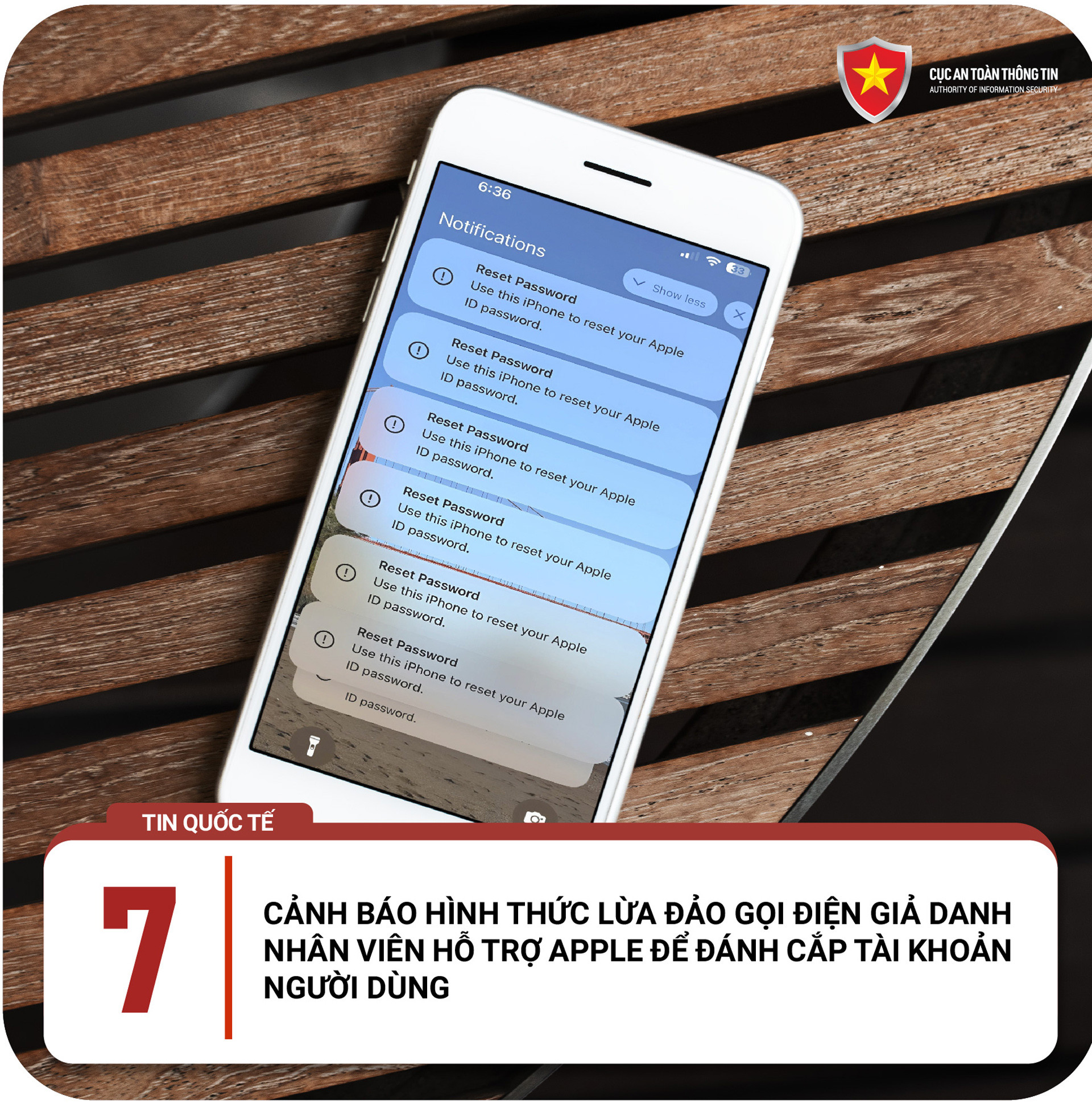- Millions of dollars lost by participation in the Dropshipping retail business model
The Information Security Department advises the people to exercise caution when participating in the Dropshipping business model, following an incident where a woman in Hanoi was defrauded of VND 12 billion (US$ 473 thousand) through the Supply Helper app on March 26, 2024. Citizens need to verify information carefully when engaging in this model and conducting online money transfer transactions, while also being wary of opportunities promising substantial profits through online business applications.
- Impersonating officials from the Department of Information and Communications to make fraudulent phone calls
The Department of Information and Communications in Bac Lieu province has recently observed cases where individuals impersonate officials from the Department of Information and Communications to make fraudulent phone calls in order to deceive the public. It is recommended that citizens remain vigilant, refrain from disclosing personal information, and not comply with requests from callers or social media contacts without verifying the identity of the contacting person.
- Risks of being lured into accessing fraudulent websites when using free Wi-Fi
The Information Security Department warns about a case of a user in Hanoi being lured into accessing a fraudulent website while using free Wi-Fi. They emphasize that advertising networks are often sold to third parties, lacking content control, thus leading to the risk of unreliable or deceptive information. Therefore, users need to be vigilant and only conduct important transactions on trustworthy networks such as home or corporate Wi-Fi, or 3G/4G networks from their own phones.
- Creating impersonating Facebook accounts of celebrities to scam through 'black credit' schemes
The police in Lang Son are investigating an online scam case involving an individual impersonating 'Bui Xuan Huan' on Facebook, advertising online loan services. This individual requests customers to transfer a deposit, then proceeds to misappropriate the money and block the contact. The Information Security Department recommends that people only borrow money from reputable organizations, be cautious of online advertisements, and refrain from providing personal information or bank account details on unreliable websites.
- Warning about tax fraud during peak tax settlement month
Tax authorities have noted numerous cases of individuals impersonating tax officials to commit fraud. They often make phone calls, send text messages, or access people through Zalo to provide links and instructions regarding tax settlement, thereby obtaining personal information and assets. The Information Security Department advises taxpayers to carefully scrutinize the content of such messages, refrain from responding or hastily following instructions provided in the messages. It's also important to note that tax agency websites use the "https" protocol and ".vn" domain. Additionally, if any signs of fraud are detected, they should be documented and reported to the relevant authorities.
- Stay vigilant against large-scale international cyberattack campaigns
The APT Earth Krahang group has conducted a network attack campaign, affecting 70 organizations and targeting at least 116 organizations in 45 countries, including Vietnam. This group employs various methods, including spear-phishing, to target government organization systems. The Information Security Department advises people to be cautious with suspicious emails, refrain from clicking on attachments or unreliable links, and avoid providing personal information when requested via email. Additionally, they should use antivirus software, avoid using email on public wireless networks, regularly change email passwords, and enable two-factor authentication on online accounts.
- Emergence of a new form of fraud impersonating Apple support staff
The Information Security Department warns about a new form of fraud targeting Apple’s product users, where perpetrators exploit the Multi-Factor Authentication (MFA) feature to spam targeted devices. Calls impersonating Apple support staff aim to deceive users into disclosing their Apple ID reset passwords, subsequently leading to the theft of user accounts. The department advises Apple users in Vietnam to be cautious of unusual calls, not to answer unidentified calls, especially those impersonating support services. They also recommend not following instructions from the perpetrators before verifying their identity and refraining from providing personal information. When in need of assistance, users should seek help from official websites and contact them directly to avoid falling victim to fraud and asset theft.

\
90% of Vietnamese users encounter fraud, with 70% becoming victims.
According to a Google survey on online information safety for users in Vietnam, 90% of users have encountered online fraud, with over 70% having been victims. The age group above 55 is particularly vulnerable, with 49% having been deceived. The top 3 reasons why older individuals fall into online scam traps are: failure to recognize the situation as a scam (48%); transactions or prizes seeming attractive (39%); feeling curious (38%).
What do we need to do?
To ensure online security, it is important to stay updated on the various forms of fraud and cyberattacks. Recent incidents have indicated a significant increase in the risk of online fraud, emphasizing the need for caution when communicating and making online transactions. It is necessary for people to recognize and avoid increasingly complex fraudulent scenarios. Simultaneously, we should share information and knowledge with relatives, family, and friends to create a more secure cyber environment.
Compiled information from: Information Security Department (Ministry of Information and Communications), VietnamNet Newspaper, Tuoi Tre Newspaper.